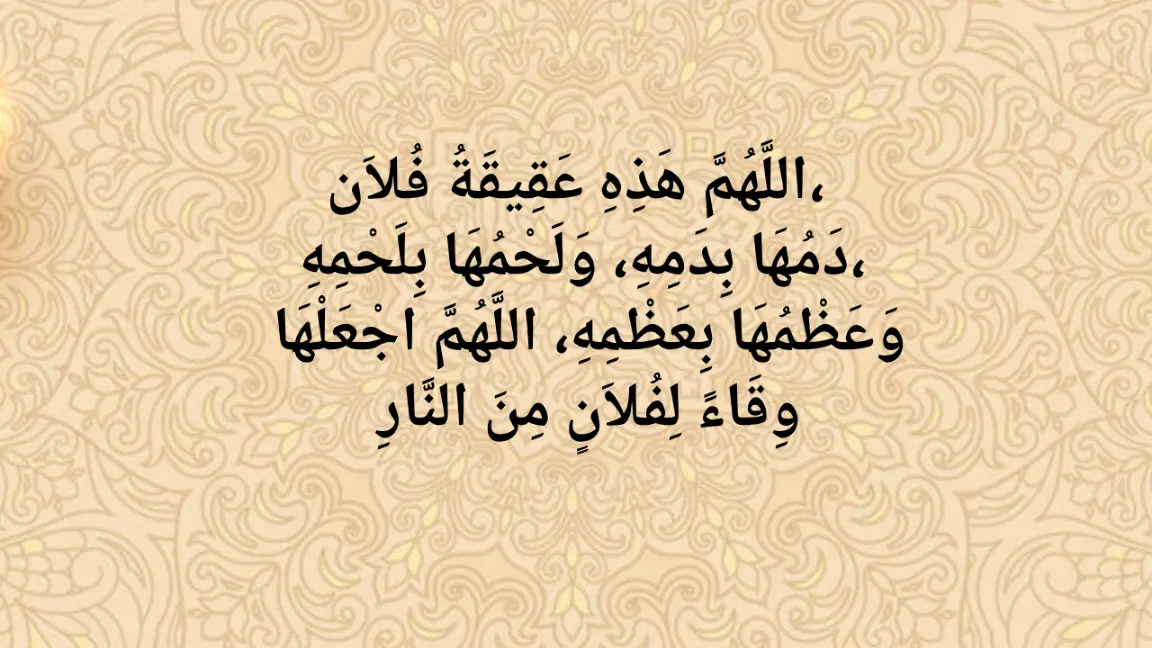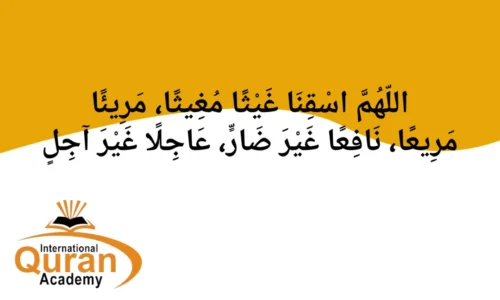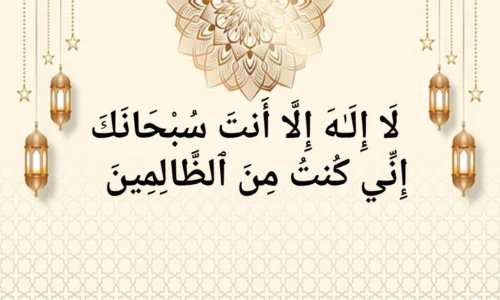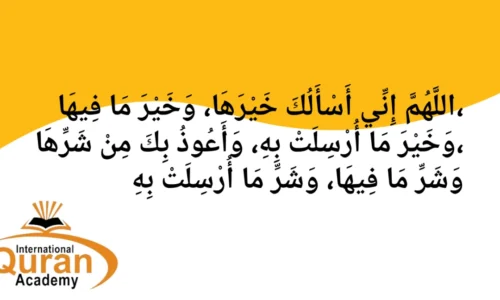The birth of a child is such a happy event among Muslim families. The Islamic faith requests us to show our gratitude to Allah (SWT) for this magnificent gift via a unique custom called Aqeeqah. It is an emotional practice of seeking safety, blessings, and a righteous future for the little one, which also includes sacrifice and celebration.
The Dua is:
Arabic Dua:
اللَّهُمَّ هَذِهِ عَقِيقَةُ فُلاَن، دَمُهَا بِدَمِهِ، وَلَحْمُهَا بِلَحْمِهِ، وَعَظْمُهَا بِعَظْمِهِ، اللَّهُمَّ اجْعَلْهَا وِقَاءً لِفُلاَنٍ مِنَ النَّارِ
ترجمہ:
“اے اللہ! یہ (جانور) فلاں کی طرف سے عقیقہ ہے، اس کا خون (بچے کے) خون کے بدلے میں، اس کا گوشت (بچے کے) گوشت کے بدلے میں، اور اس کی ہڈیاں (بچے کی) ہڈیوں کے بدلے میں ہیں۔ اے اللہ! اس (عقیقہ) کو فلاں کے لیے دوزخ سے بچاؤ کا ذریعہ بنا دے۔
Translation:
“Allahumma haadhihi ‘aqeeqatu fulaan, damuha bidamihi, wa lahmuha bilahmihi, wa ‘azmuha bi’azmihi. Allahumma-j’alha wiqaa’an li-fulaan min an-naar.”
English Translation:
“O Allah, this is the Aqeeqah of [child’s name]. Its blood is for his/her blood, its flesh for his/her flesh, its bones for his/her bones. O Allah, let it be a protection for [child’s name] from the Fire.”
Replace “fulaan” with the actual name of the child during the recitation.
This beautiful dua shows submission to Allah and requests protection from Hellfire for the newborn.
What Is Aqeeqah in Islam?
Aqeeqah is an Islamic custom offering a sacrifice of an animal, normally a goat or sheep, on the occasion of the birth of a baby. It is an image of the Prophet Muhammad ﷺ, and it is a means of expressing gratitude to Allah and a means of securing the child.
- For a baby boy, it is recommended to sacrifice two animals.
- For a baby girl, one animal is sufficient.
Aqeeqah is usually done on the 7th day after birth, but if it cannot be done then, it can be performed later.
Why Is Dua Important During Aqeeqah?
Dua is a powerful tool for every Muslim. When performing Aqeeqah, making dua:
- Shows your gratitude to Allah
- Asks Allah to protect the child from evil
- Invites barakah (blessings) into the child’s life
- Connects the newborn to the Islamic way from the very beginning
Reciting proper blessings for Aqeeqah helps to complete Sunnah correctly and strengthens the bond between family and Allah.
Other Sunnah Actions on the Day of Aqeeqah
There are other recommended actions to perform on the same day, including praying for Aqeeqah:
- Shaving the baby’s head – The hair is weighed, and the equivalent weight in silver is given as charity.
- Naming the child – If not done already, the baby should be given a good Islamic name.
- Feeding others – Distribute the cooked meat from the sacrifice to the poor, family, and friends.
- Making additional duas – Pray for the child’s good health, long life, and righteous path.
Can Aqeeqah Be Done Later?
Yes. In case one is unable to perform Aqeeqah on the 7th day, then it should be performed on14th or4thor 21st day. Other scholars also give the child freedom to perform before puberty. Nonetheless, it is preferable to do it at the earliest.
Tips for a Meaningful Aqeeqah Ceremony
- Make the intention (niyyah) sincerely for the sake of Allah.
- Prepare the dua in advance so you can recite it properly.
- Include the child’s name when saying the dua.
- Share the happiness with relatives, neighbors, and especially the poor.
- Teach older children about the purpose and blessings of Aqeeqah.
Conclusion:
Aqeeqah ceremony is not a mere celebration – rather, it is a worship function. Aqeeqah Muslim parents show their gratitude to Allah by offering a sacrifice and praying after the birth of a child. It goes well with the life of a newborn and makes them aware of Islamic values since their inception.
Always remember, Only Allah can make your child successful and safe. Do Aqeeqah out of love, sincerity, and right blessings to make it meaningful.










